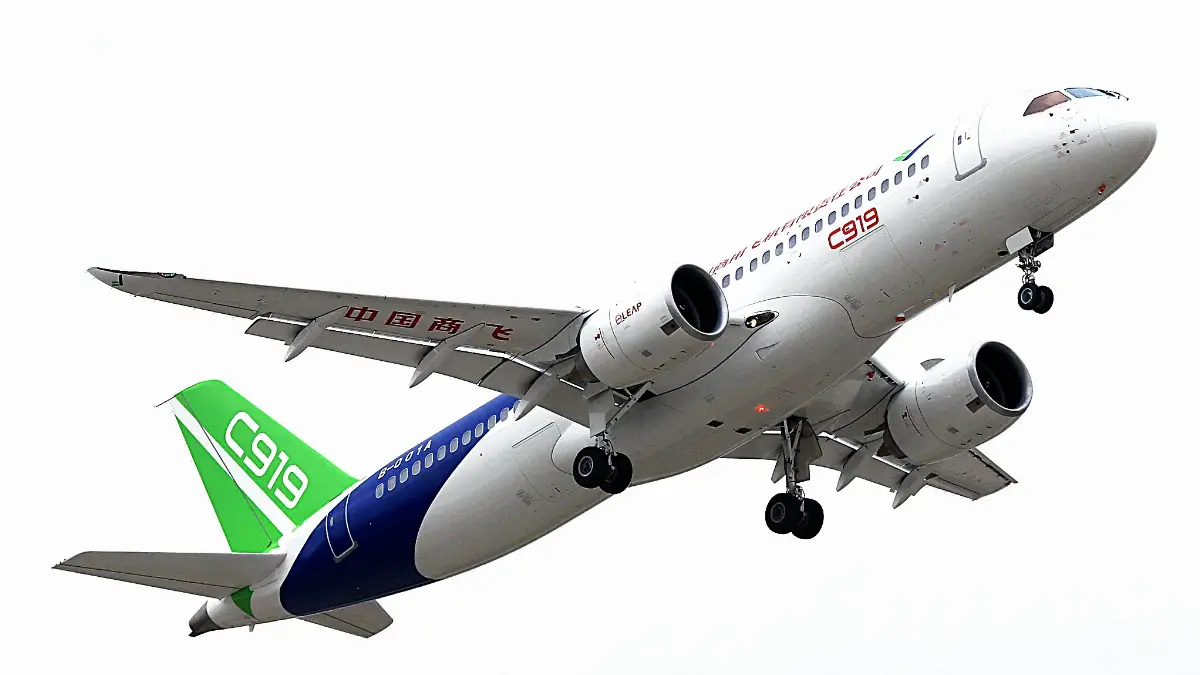
Beijing reshapes its skies: stops new Boeing plane deliveries
Between duties and uncertainties, China turns towards Airbus and finances the rise of Comac

Thanks to President Xi Jinping's visit to Hanoi, Vietnam (and Vietjet) is also looking to the Chinese manufacturer for the construction of logistics centers on the territory
Beijing puts the brakes on Boeing: duties and crisis of confidence weigh. China has announced a significant reshaping of its air procurement policy, effectively blocking deliveries of new aircraft produced by the US giant Boeing. The decision, which comes at a time of global trade tensions and persistent questions about the quality and safety of Boeing aircraft, marks a potential turning point in the global civil aviation market.
According to Chinese government sources close to the Civil Aviation Administration (CAAC), soaring costs associated with new tariffs on Boeing aircraft and parts have made new deliveries unsustainable for domestic airlines. "The significant increase in costs directly attributable to the new tariffs has fundamentally altered the economic viability of purchasing and delivering new Boeing aircraft", said a senior CAAC official, who requested anonymity due to the sensitivity of the matter.
Although a potential "case-by-case" approval for some Boeing 737 Max models already destined for Chinese operators has not been ruled out –probably so as not to abruptly interrupt existing fleet plans–, the overall situation reflects growing concern in Beijing. This concern is not only economic in nature, but is also fuelled by repeated quality problems found in Boeing aircraft and previous incidents that have undermined confidence in the Seattle manufacturer. A serious blow for Boeing, for which the Chinese market previously represented a considerable share of global deliveries, estimated up to almost a quarter of the total.
The combination of high fares and operational uncertainty has created a climate of mistrust that has prompted Beijing to reconsider its long-term procurement strategies. In parallel, the Chinese Government is reportedly considering financial support measures for domestic airlines that are operating expensive leases on Boeing aircraft, in order to mitigate the economic impact of the situation.
China focuses on Airbus and launches the challenge to Comac; Hanoi winks at Xi Jimping
In this scenario of downsizing the relationship with Boeing, China is accelerating its transition to the European manufacturer Airbus and investing heavily in the development and marketing of its national airliner, the Comac C-919. Sources within the main Chinese carrires confirm an increase in orders and deliveries of Airbus aircraft, perceived as a more stable and reliable alternative in the current context.
The real protagonist of the new Chinese strategy is Comac (Commercial Aircraft Corporation of China). The C-919, a medium-sized airliner developed entirely in China, is now at the center of Beijing's efforts to achieve self-sufficiency in the civil aviation sector and compete globally. The decision to focus firmly on Comac is not only a matter of national pride, but also a strategic move to reduce dependence on foreign manufacturers and stimulate internal technological innovation.
An eloquent signal of this new direction came during the recent visit of Chinese President Xi Jinping to Hanoi (see for details AVIONEWS). In a bilateral meeting also held with Vietnamese Prime Minister Pham Minh Chinh, the head of the Hanoi government (as revealed by Vietnamese government sources), expressly invited Comac President He Dongfeng to consider significant investments in Vietnam. The specific request concerned the creation of warranty, maintenance and repair centers for Comac aircraft on Vietnamese territory.
This move by Hanoi, interpreted by political analysts as a sign of openness and interest towards the Chinese aviation industry, represents a potential springboard for Comac in the Southeast Asian market. The establishment of support infrastructure in Vietnam would not only facilitate the entry of Chinese aircraft into the country, but could also serve as a regional hub for assistance and maintenance, increasing the attractiveness of Comac aircraft for other airlines in the region.
The statements by Prime Minister Pham Minh Chinh, reported by the official Vietnamese news agency "VNA", underline Hanoi's willingness to strengthen economic and technological cooperation with China in strategic sectors such as aviation. The synergy between China's ambition to assert itself in the aerospace sector and Vietnam's opening up could redefine the balance of power in the regional and global aviation market in the years to come.
AVIONEWS - World Aeronautical Press Agency